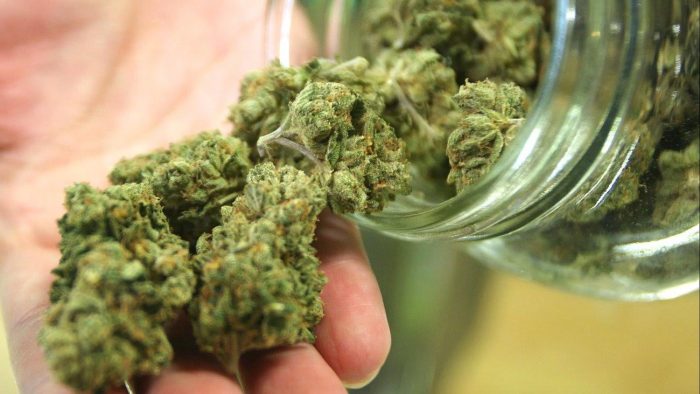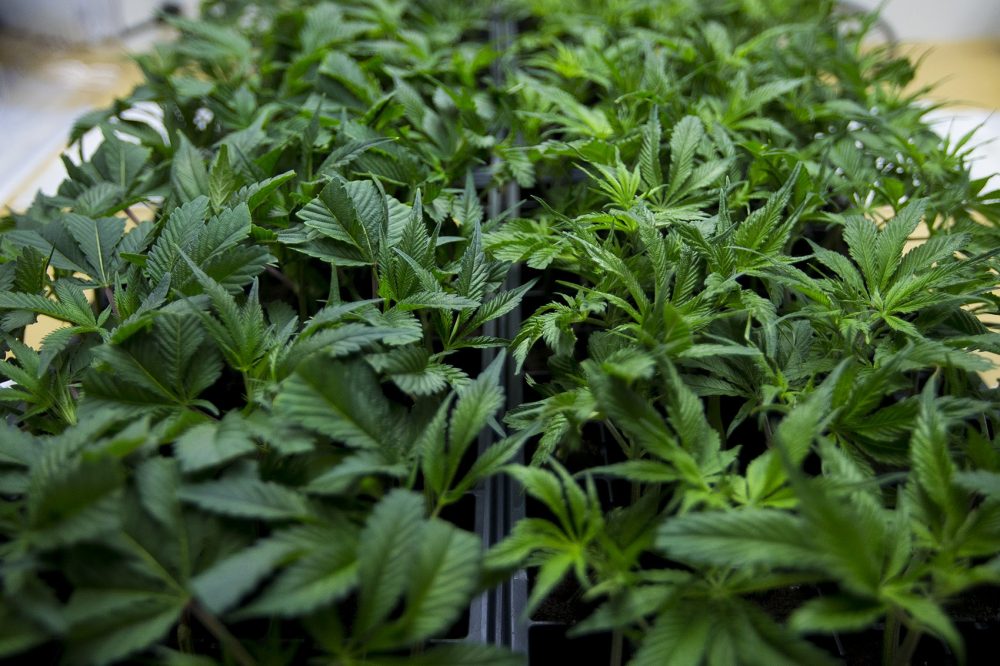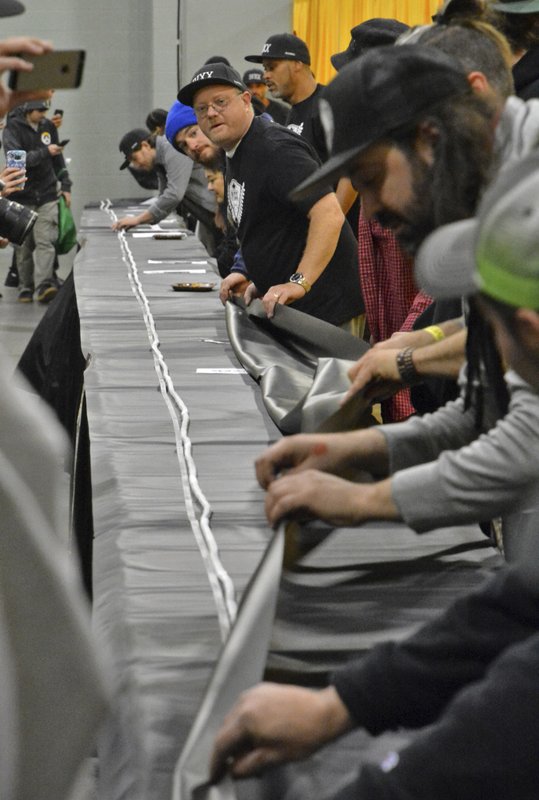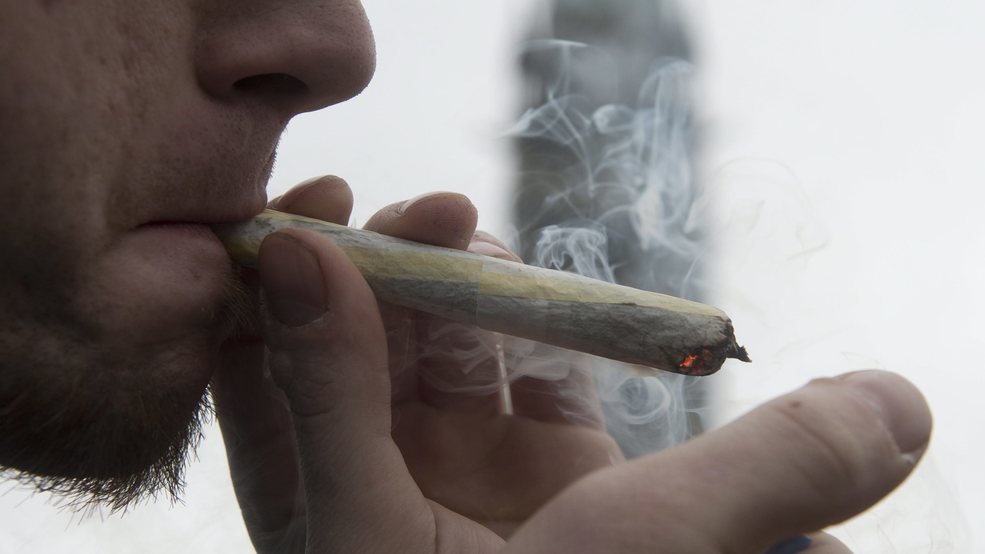Massachusetts voters approved the end of marijuana prohibition for adults over the age of 21 in November of last year, but lengthy debates over the final guidelines of that legalization have held up implementation until now.
On July 19, the Massachusetts House of Representatives and State Senate passed H. 3818, which aimed to modify a number of areas of concern for lawmakers on both sides of the aisle as well as bridge the gap between conflicting bills that had been passed in recent months but couldn’t get to Governor Baker’s desk.
It seems both lawmaking bodies in Massachusetts were motivated to move into the next phase of legalization, as the revised bill passed easily in both the State Senate and House.
Today, Governor Charlie Baker signed the final revised version of H. 3818 into law, officially legalizing the regulation and taxation of marijuana in Massachusetts. This new recreational law will complement the existing medical marijuana law that has been on the books since 2012 in the Commonwealth.
Though retail operations were supposed to be open to the public by January 1, 2018, “Opening Day” will now be pushed back to July 1, 2018.
While some of the regulations from the original ballot question #4 have remained unchanged, a number of others have seen modifications on their long path to Governor Baker’s desk.
Cannabis Control Commission
The three-member board was created under the voter-approved bill in November, but the newly revised law has expanded the task force to five members. The commission will be part of the state’s treasury department, and the treasurer will appoint the chairperson of the commission, as well as make appointment decisions in conjunction with the governor and state attorney general.
When appointing members to the Cannabis Control Commission, a maximum of three members can represent the same political party. Additionally, one appointed member must have extensive experience in either toxicology, substance abuse, public or mental health. Another member must have a background in public safety, while a separate appointee must have experience in finance, securities, or business management. The fourth member must have a track record of overseeing commodities, production, or distribution in a similarly regulated industry. The fifth member of the committee must have experience in dealing with legal policy and social justice issues.
The commission will set guidelines on advertising and product packaging surrounding marijuana products in the state, including:
Certified child-resistant packaging and opaque containers.
Regulations regarding advertising, marketing and branding, including:
- Advertising is only permissible in markets where at least 85 percent of the audience is over 21;
- A product cannot be identified as safe other than CCC-regulated labeling.
- Bans retail shops near school zones.
- Licensees must have a publicly available software application to track and trace all marijuana cultivated, processed, or manufactured, from seed-to-sale.
- Edible marijuana products will have a single serving limit of 10 mg of THC and cannot resemble any non-marijuana food product currently sold.
- Labeling to indicate that a product is or contains marijuana, and the amount of THC in the product.
Home Cultivation
The personal cultivation regulations laid forth in the voter-approved bill went untouched, so adults over the age of 21 will be legally permitted to grow up to six plants in their residence. There can be up to twelve plants simultaneously growing in one home if there are multiple adults residing within.
Marijuana grown in the home cannot be visible from a public area such as the street. Home cultivation is to be utilized for personal use only, manufacturing marijuana to be sold or made into other ancillary products like edibles requires proper licensing
In the case of rental properties, landlords will have the right to prohibit tenants from smoking or cultivating marijuana on the premises.
Local Municipality Rights
Individual cities and towns will be able to decide for themselves if they want the recreational marijuana market doing business within their borders.
Municipalities will be able to craft guidelines that dictate the hours of operation, zoning, and other business details before approving a new establishment.
Licensed cultivators and marijuana product manufacturers may be banned if their business creates a “public nuisance” of any kind.
The 28 percent of communities in Massachusetts that voted down legalization will have an easier path to banning retail marijuana shops in their municipality. In these cities and towns, no voter referendum will be required to enact restrictions. However, in communities that did vote to end prohibition, voters must dictate their wishes for a ban at a referendum before local officials can act.
Possession
Adults aged 21 and older in Massachusetts will be allowed to possess up to one ounce of processed marijuana in public and up to ten ounces in their residence. One adult may give another adult up to one ounce of cannabis as long as no money is exchanged and they do not advertise the transaction publicly.
Public Consumption
Marijuana cannot be consumed legally in public, nor transferred between adults in public under any circumstance.
Tax Rate
Though the original ballot question called for recreational marijuana products to be taxed at 12 percent, the final H. 3818 bill almost doubled that figure — though Massachusetts will still fall well below other legalized states with much higher taxes.
The possible 20 percent tax rate is comprised of a new 10.75 percent excise tax on marijuana sales, the state’s existing 6.25 percent sales tax, and up to an additional 3 percent that local cities and towns will be able to tack on to all recreational marijuana sales.
All proceeds from the new sales taxes will be deposited into the Marijuana Regulation Fund to help offset the cost of overseeing the new legal market. Medical marijuana will remain untaxed.
credit:marijuana.com













